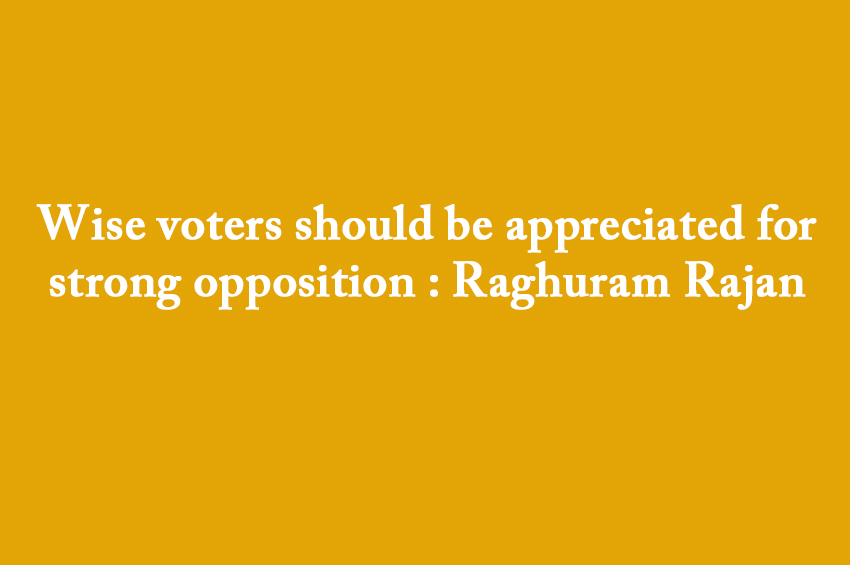Winning Bizness Desk
Mumbai. Former Reserve Bank of India (RBI) Governor Raghuram Rajan has praised the 'wise' Indian voters for electing a strong opposition in the recently concluded Lok Sabha election in which BJP could not get majority on its own. He emphasized that the election results are an important victory for Indian democracy and its economy. He also labelled the development a “win for Indian democracy and a win for the economy”. Veteran economist Rajan said in a LinkedIn post, "The Indian voter has spoken. And what a wise decision! This is a win for Indian democracy and a win for the Indian economy. Regardless of what happens over the next few days, we will have a strong opposition that forces the government to change course."
Notably, on June 4, Prime Minister Narendra Modi ensured for his third consecutive term as Prime Minister. However, unlike the last decade, this time he will have to rely on allies to form a coalition government. The BJP is 32 seats short of the required majority figure of 272 in the Lok Sabha. The NDA managed to win 291 seats, while the Congress-led India Bloc won 234 seats. The Congress won 99 seats as against 52 seats in 2019. While the BJP won 240 seats. India needs to reform its economic direction. If the Bharatiya Janata Party wins with a substantial majority, then this change is less likely as the party may see this victory as a confirmation of its current policies.
Rajan shared an article written by him along with Rohit Lamba. In this, he has highlighted the reasons why India needs to change its economic direction. The main points of the article highlights that although India's economic growth seems to be higher than other countries. But, it is insufficient to create enough quality jobs. Growth is not happening in the right areas. It also reads as, "India is a young nation where more than 1 crore youth enter the job market every year. When countries like China and Korea were in a similar demographic stage, they successfully employed their labor force. experienced faster growth than India. In contrast, India risks wasting its demographic dividend. Rising unemployment, especially among the middle and lower-middle classes, is leading to growing inequality between the rich and the rest of the population."


